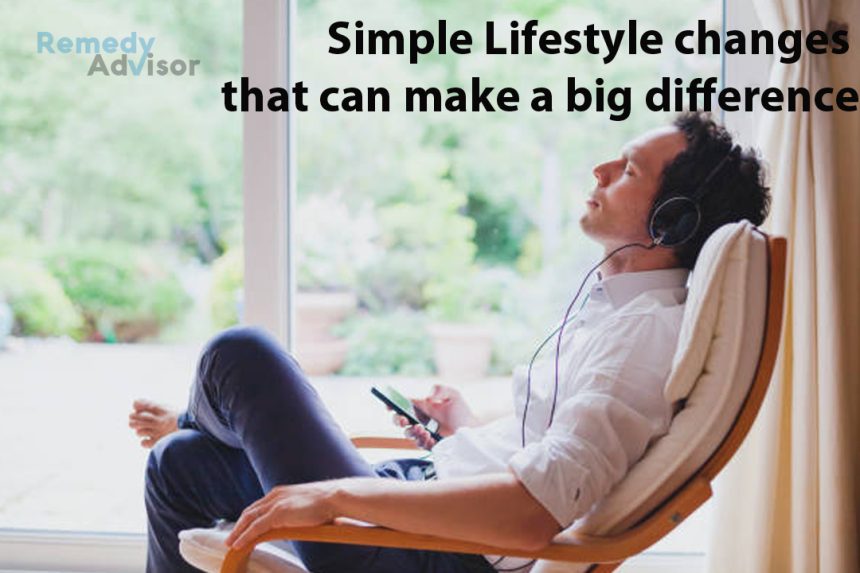Believing negative stereotypes about aging can cause individuals to age faster, according to a study of Americans aged 74 and over. To maintain a youthful attitude, it is important to focus on the positive aspects of aging, such as spending time with loved ones and trying new things. Emotional and physical closeness is just as important as sexual passion in maintaining a successful relationship as one ages, according to a study of women with an average age of 67. Group singing, such as in a choir, can have physical and emotional benefits, as seen in a study of healthy older Americans. Finally, having a positive attitude about aging can lead to a longer life, according to a study of Americans aged 50 and over. By focusing on the positive and embracing one’s age, individuals can live longer, healthier lives.
Avoid relying on preconceptions
American scientists studied people over the age of 74 and found that just thinking about how fast time is going can make you age faster. The study found that believing bad stereotypes about older people that come from the media can make aging go downhill. To keep a more young attitude, it’s important to think about the good things about getting older. This could mean doing more fun things, spending more time with family and friends, and trying out new things. We can better deal with the effects of time on our bodies and thoughts if we think about the good things about getting older instead of dwelling on the bad things.
Select warmth over passion
As you age, it can be just as satisfying to stay emotionally and physically close to your partner as it is to have steamy nights of love. Even though having healthy sex as you get older is good for your health, experts who studied women with an average age of 67 found that being close to their partner was more important than getting an orgasm. So, if you find that your sex drive isn’t what it used to be, don’t let that stop you from looking for other ways to be close to your partner and show love, like cuddling. You can keep building a happy and successful relationship with your partner as you get older if you stay in touch and stay close emotionally.
Sing together
A study of 168 healthy older people in the US found that those who sang in a choir were healthier than those who didn’t. After a year, the choir members said they took less medicine, felt less lonely, and fell less often than their peers who didn’t sing. This could be partly because of how singing affects breathing, but it could also be because of the emotional effects of singing in a group. So, no matter how good your singing is, it’s good to find ways to sing with other people, like in a choir, at a family sing-along, in a church, or with tens of thousands of people at a football game. Group singing is a fun exercise that can help you feel better physically and mentally.
Embrace your age

Having a good attitude about life can help you live longer. In the United States, people aged 50 and up were asked to rate how they felt about the future. Researchers did follow-up studies almost thirty years later and found that people who had a more positive view of aging had lived an average of seven and a half years longer than those who had a more negative view. By keeping a good attitude, you may also learn better ways to deal with problems and be more likely to ask for help when you need it. Seeing the glass as half full instead of half empty can help you deal with life’s ups and downs and live a longer, healthier life generally.
Care others
A new idea called “survival of the nicest” says that being kind might help you live longer. This idea says that people have done well as a species because we care about each other. Researchers in the U.S. looked at old societies and found that kindness was a key part of their ability to stay together. Also, people have a natural ability to help others, especially those who are close to them. By being kind and caring to other people, we can not only help them, but also improve our own health and make sure we live longer. So, being kind to other people can be an important part of having a happy and healthy life.
Get tough
Harvard University research shows that people who can handle what Shakespeare called “the slings and arrows of outrageous fortune” are more likely to live a long and healthy life. Psychological toughness, or the ability to keep your mind strong in the face of worry, anxiety, and depression, is an important part of living a long life, especially as we get older. The best way to become mentally tough is to accept things as they are and go with the flow. This helps us deal with whatever life throws at us. By keeping a positive attitude and building up our resilience, we can handle life’s difficulties better and live a long, happy life.
Don’t think you need less sleep
Contrary to a popular myth, getting enough sleep is important as we get older. Researchers who study sleep disorders have found that getting less than six hours of sleep a night can make us feel bad. If you have trouble falling asleep or staying asleep through the night, there are a few things you can do to improve your sleep pattern.
- Don’t work out or eat right before bed, because these things can make it hard for you to sleep.
- Only sleep and have sex in your bedroom.
- Don’t do things like online shopping, watching TV, or reading the internet late at night, as these can wake up your brain and make it harder to fall asleep.
By making good sleep habits a priority, we can improve the quality and amount of sleep we get, which will improve our health and well-being as a whole.
Invest in relationships

Having good ties with other people, like a loving partner or helpful friends, is important for staying healthy and living a long life. Research has shown that having someone to love and care for is good for our minds and bodies. In fact, a study done by US psychologist Elliot M. Friedman on 61–90-year-old women found a link between having good friends and having lower amounts of interleukin-6 in the blood. High amounts of interleukin-6 have been linked to heart disease, cancer, and dementia, among other things. Other studies have also shown that people who are happily married tend to live longer than those who are single or divorced, and that people who feel wanted are less likely to get chronic illnesses. So, spending in good relationships with other people can have a big effect on our health and happiness, making us live longer and better.
On the other hand, feeling lonely can hurt our brain health and make us more likely to get Alzheimer’s disease. A study done in the US found that people who thought they were lonely were more likely to have problems with their minds and get Alzheimer’s disease. So, it’s important to make an effort to put time and energy into our relationships and keep the good ones going. By putting our relationships first and working to feel more linked to other people, we can improve our health and happiness.
Have faith
Researchers have found that going to religious services can be good for our health. Positive feelings like hope, faith, forgiveness, joy, compassion, and gratitude that come from going to these services can help lower stress and keep chemicals in the body in balance that protect us from it. Researchers in the US have found that going to church regularly can add two to three years to our life expectancy. It’s not clear if this benefit comes from the power of faith or from the benefits of being part of a group or having a clear sense of purpose. No matter what, taking time each week to think about life with people who think like us, whether as part of a religious or secular group, could be very good for our health and well-being. We can improve our general quality of life and maybe even live longer if we find ways to connect with others and think about things that matter to us.
Got Organized
The US-based Longevity Project, a major eight-decade study, found that people who are more organized tend to live longer than people who are not as organized. This could be because they try to put their health first and avoid doing things that could hurt them. If you want to bring more order into your life, start by making small changes, like putting your mail in order. By slowly applying this method to other parts of your life, you can put yourself on the road to living a long life. By making organization a priority and giving your daily life a feeling of structure, you can improve your overall health and maybe even live longer.
Work hard

Researchers on the Longevity Project say that, contrary to what most people think, working past the age of retirement may actually add years to your life. They found that many great professionals who lived a long time worked at least part-time after they were supposed to retire. People are often taught to think that working hard can cause unhealthy amounts of stress, but this study shows that success, even in a tough job, can actually make us feel better overall. So, if you are healthy, you might not want to stop working completely. Instead, think about cutting back on the number of hours or days you work or even keeping your full-time job for a few more years. You may be able to live a longer, healthier life if you stay interested in your work and find a mix that works for you.
Surf for the sake of your mind
US scientists say that searching the internet is a good way to keep our brains busy and can have big benefits for our mental health. In a study of people aged 55 to 76, the parts of the brain that control language, reading, memory, and visual skills were more active in people who did a number of web searches. Even people who used the Internet a lot showed a big improvement in the parts of the brain that deal with making decisions and complicated thinking. Using the internet can also help older people keep up with changes in their favorite areas of interest and find new ones. We can help our brains and maybe get better at making decisions if we make an effort to go online and look at the huge amount of knowledge that’s there. Even if we only spend an hour a day on the Internet for a week, it can be very good for our brain health.
Learn to paint
Having a creative hobby can help you in many ways, like making it easier to focus and concentrate and giving you a nice break from the stresses of everyday life. A study of older women in the UK found that sewing was better for their mental health than being active or being outside. These results show that people who find outdoor activities hard or boring may find creative activities to be a good option. There are a lot of creative hobbies to choose from, like spinning, crocheting, carpentry, painting, and sculpting. If you have an artistic hobby that you enjoy, you might even be able to meet new people and make new connections. So why not try something new and enjoy all the rewards of being creative?
Gratify yourself
Getting older can make it scary to learn something new. A US study, on the other hand, showed that older people can learn just as well as younger people if they are motivated to do so. The study showed that adults of all ages were equally motivated to reach their learning goals when they were offered money. So, if you want to learn a new skill, you could open a savings account and give yourself a gift every time you reach a learning goal. By doing this, you can keep yourself interested and inspired to learn, which will help you reach your goals faster. Don’t let your age hold you back. You can learn and grow at any point in your life.
Engage your intellect

People generally agree that keeping our minds active as we age has many benefits, such as better mental health, better problem-solving skills, and a lower chance of getting diseases that get worse over time, like dementia. There are many ways to keep your mind sharp and flexible, such as doing crossword puzzles, taking a course or class, learning a new language, or playing online games, especially group strategy games. By doing things that make your mind work, you can keep your brain active and healthy, which will help you keep your mental abilities and general health as you get older. So, don’t be afraid to try new things and push your mind. Your brain will thank you.
Jog your pup
A UK study of dog walkers showed that owning a dog can be good for your body and your mind. When you walk your dog often, you can get in better shape and feel less lonely. The study found that people who walked their dogs felt better about their lives and often met and talked to other people while walking their dogs, which made them happier. Even if you can’t have a dog of your own, you could walk a friend’s dog to get some of the same benefits. Spending time with dogs and getting some exercise can make you feel better and improve your health and well-being as a whole.
Looking forward to a happy life
Contrary to what many people think, getting older doesn’t always imply being grumpy. In fact, according to UK studies, older people experience happiness on par with young people. This might be the case because as we get older, we become more resilient and create coping mechanisms to deal with the difficulties of life. So rather than fearing aging, take advantage of the possibilities it presents, such as strengthening bonds with younger family members, engaging in hobbies, meeting new people, or visiting intriguing new places. Age brings unexpected pleasure and the opportunity to fully experience life.
Help in your local hospital
If you are retired and have time on your hands, you might want to help. Several studies show that helping others is a good use of your time and skills. It not only helps you stay in touch with people and meet new ones, but it also gives you a sense of purpose and makes you feel like you’re making a difference in the world, which is important for good mental health. Volunteering may even help you live longer. US research shows that it can help:
- lower stress levels
- increase the amount of “happy” brain chemicals
- Ease long-term pain
- Improve the health of your heart.
There are many ways to help, like calling the volunteer group at your local hospital, helping out at charity shops, or joining a community garden project.
Buy everything you can

A 10-year study of about 2,000 people over the age of 65 in Taiwan found that going shopping often may help you live longer. The study found that guys who went shopping every day were 28% less likely to die early than those who didn’t go shopping as often. For women, the risk was 23% lower. The main things that led to this result were found to be social contact, better physical fitness, and more mental agility. So, if you needed a reason to go shopping, you now have one.
Say “ohm”
A study done in the US and published in the American Journal of Cardiology shows that people with mildly high blood pressure who practice Transcendental Meditation (TM) regularly can live longer. The study followed people with slightly high blood pressure for up to 18 years. On average, the people in the study were 71 years old. The study compared the benefits of a TM program with those of health education and behavioral techniques like mindfulness and progressive muscle relaxation. Results showed that the TM program was much more successful than the other techniques at lowering death rates by 23%.
Follow the rule of seven
A Harvard University study found that there are seven important living choices that can affect how well you age if you make them before you turn 50. The study followed 569 young people until they were old and found that the following things were important for living well:
- Not getting drunk too much
- Not smoking
- Having a stable and happy marriage
- Exercising daily
- Keeping a healthy weight
- Coming up with good ways to deal with problems
- Getting an education
Even though you can’t change things like your genes and background, focusing on the things you can change may help you age well.







